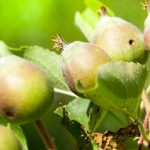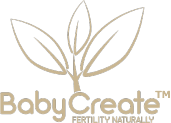
Miscarriage, Ectopic Pregnancy and Recurrent Pregnancy Loss
8 Jun 2018
PCOS and Your Fertility (Part 2)
30 Sep 2018
As a fertility naturopath Joanne at BabyCreate takes a natural approach when treating patients with PCOS.
What is PCOS?
PCOS (Polycystic Ovarian Syndrome) is a common hormonal condition affecting 12-20% of Australian women of reproductive age.
Most women don’t know they have it as it can be difficult to diagnose.
What causes PCOS?
There are many theories as to what causes PCOS, but no one knows for sure.
Initially it was thought to only be caused by imbalances in the ‘sex hormones’ – oestrogen, progesterone and testosterone.
But recently it was discovered that insulin resistance is the main cause.
Insulin Resistance
Insulin resistance is a condition whereby a person’s cells don’t use insulin effectively.
When this occurs, their insulin levels rise and their cells find it difficult to absorb glucose/sugar. This results in a buildup of sugar in the blood.
Having insulin resistance can increase the risk of developing diabetes and cardio vascular disease.
PCOS is considered to be a precursor of metabolic syndrome and Type 2 Diabetes.
PCOS Symptoms
In women who have PCOS, these high insulin levels can cause the ovaries to make more testosterone which can result in facial hair, acne and male-pattern hair loss.
Blood sugar dys-regulation is also thought to cause women with PCOS to experience depression, anxiety and eating disorders, particularly binge eating – which may worsen the problem unfortunately.
Other symptoms of PCOS can include infertility, irregular and missed periods, weight gain, hair thinning, and infertility.
20-40% of women with PCOS tend to experience miscarriage and other pregnancy complications.
Genetics vs Destiny
There is a strong genetic component to developing PCOS, but research1 has proven this risk can be altered by diet and lifestyle modifications.
In other words, your genes are not your destiny – having the genes for a particular condition is not a given that you will suffer from that disease. You still have the ability to change your environment and hence your destiny. Altering your lifestyle will decrease your genetic risk.
If you come from a family that has a strong PCOS genetic component, you don’t need to feel thwarted by this fact. You still have some control over your destiny!
You can help improve your fertility by changing your diet to keep your blood sugar in balance; losing weight if you are overweight; doing moderate regular exercise; as well as taking measures to reduce your levels of stress.
Are there natural treatments for PCOS?
PCOS can sometimes interfere with fertility, so some women with PCOS may find it difficult to get pregnant.
As a Fertility Naturopath, I use a natural approach when I treat my patients with PCOS.
There are many herbs, vitamins and supplements that have been scientifically proven to have the ability to reverse PCOS and help improve fertility.
My choice depends on the specific needs of each individual patient.
And of course, I will give guidance, advice and support for combining these with whatever dietary and lifestyle changes that may be required in order to achieve the full benefit from my programme.
Essentially, we work together for the best outcome.
In my experience, it’s this ‘team’ approach that makes all the difference to PCOS and your fertility!
Joanne Lipinski – Fertility Naturopath Melbourne
